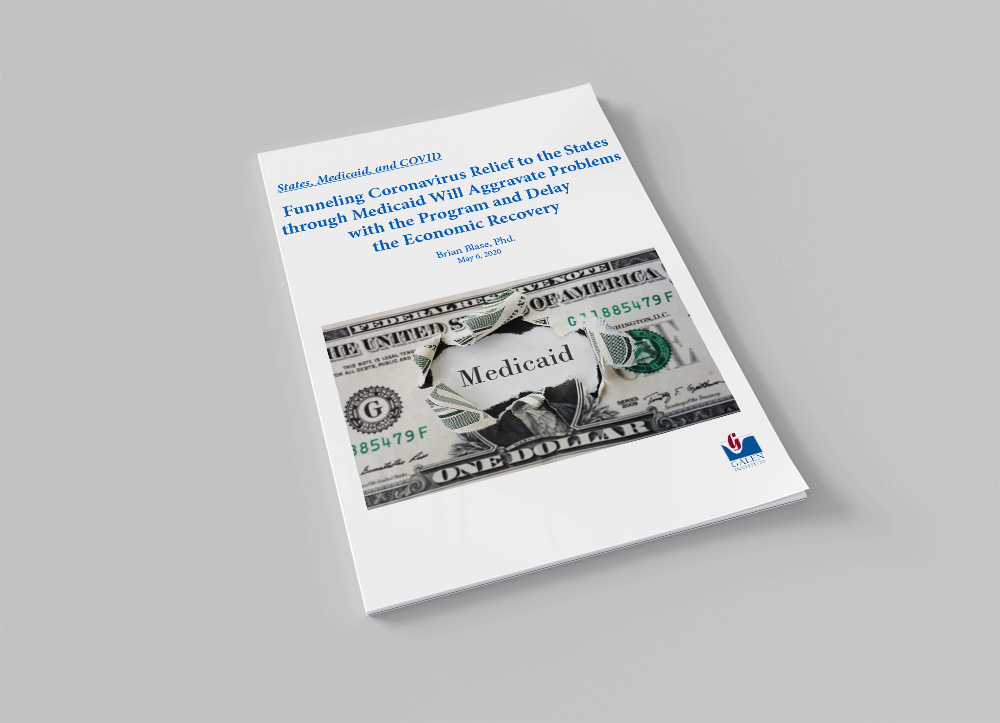Galen Senior Fellow Brian Blase concludes in an important new paper that the formula being proposed by leading House Democrats to provide coronavirus relief to states would exacerbate Medicaid’s already-serious problems and provide a huge incentive for states to keep their unemployment rates high.
His analysis shows most states would receive $19 in federal money for every $1 they spend through Medicaid for the rest of the year. Elevated federal payment rates would persist for years, reducing states’ incentives to wisely spend taxpayer money and limit waste.
Equally bad, it would delay the recovery by giving states an incentive to keep their economies shuttered and unemployment rates high in order to draw down the federal funds that would pay about 95% of their Medicaid costs. And the plan would send the federal government even deeper into debt.
The title of his paper makes it clear: “Funneling coronavirus relief to the states through Medicaid will aggravate problems with the program and delay the economic recovery.”

Blase takes a deep dive in this paper with numerous state-by-state charts to show the unfairness and distortions of the proposed plan—penalizing less-wealthy states while sending a disproportionate share of relief dollars to richer states with profligate Medicaid programs.
Medicaid already is riddled with schemes states use to maximize their take of federal dollars, often diverting the money from its intended purpose of providing care for the poor, elderly, and disabled. This would give states even greater incentives to up their game.
Blase explained how it would work in a Wall Street Journal op-ed, “A New Recipe for Waste in Medicaid.”
“The bill, introduced by senior House Democrats, would increase the federal reimbursement of state Medicaid spending by 4.8 percentage points for each point by which the state’s unemployment rate exceeds a threshold, likely around 5%. The higher its unemployment rate, the less each state would have to pay for its share of Medicaid.”
Blase offers a number of better recommendations for Congress, including distributing money to states through a program that would be temporary and targeted to the actual coronavirus problem, boosting Medicaid program integrity to improve the program for enrollees and taxpayers, and gradually reducing the federal government payment rates for Affordable Care Act expansion enrollees in order not to disadvantage traditional Medicaid recipients.
